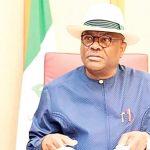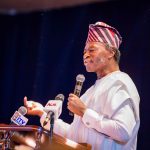Degeneracy of Public Communication in Nigeria and the Road to Perfidy
By Chidi Omeje
The tempestuous exchange between anchors of _The_ _Morning Show_ , a popular breakfast programme on _Arise News_ , and their guest, presidential spokesman, Daniel Bwala on Tuesday brought to the fore the gnawing state of public communication in Nigeria. The barney was sparked off when one of the anchors, Rufai Useni, took Mr Bwala to task over his previous uncomplimentary commentary on the current government and his sudden turn around to become the mouthpiece of the same government, thereby repudiating his widely held views about the government.
Until a couple of months ago, when, against all expectations, he was appointed one of the spokespersons of President Tinubu, Bwala was a fiery critic of the government who spared no noxious word to describe the government and the president. His uncomplimentary remarks and harsh statements against the president, his government, and party littered the digital space, making it difficult for his audience to reconcile his views then and now.
But Mr Bwala is not alone in this infamy; it is a national malaise. One can actually count on one’s fingertips Nigerian public officials or officers whose words are their bonds. Integrity quotient and ethical capital are fast receding in our public space. Public communication is in a state of crisis—a crisis of confidence. The blatant disregard for truth, principled stand and self-respect by those who dominate our public communication space have eroded trust and fueled widespread disillusionment in the polity. At the heart of this problem lies a toxic mix of insincerity, inconsistency, and insensitivity. Public officials seem utterly unconcerned about the accuracy, consistency or impact of their messages; they often peddle falsehoods and misinformation with impunity.
The Nigerian audience is treated as an afterthought, deemed undeserving of respect or the truth. This is evident in the way public officials communicate, often using language that is vague, ambiguous, deceptive, self-serving, and deliberately misleading. They seem to believe that the public is gullible and can be easily manipulated with clever rhetoric, brazen volte-face and empty propaganda.
This crisis of communication is further exacerbated by the lack of accountability and transparency. Those in power and those who speak for them operate with a sense of impunity, knowing that they will not be held accountable for their words or actions. The result is a culture of deceit and manipulation, where the truth is distorted or concealed to serve the interests of those in power.
The consequences of this approach to public communication are far-reaching. It has created a culture of mistrust and cynicism, where the public is skeptical of everything that comes from those in power. It has also undermined the credibility of institutions and leaders, making it difficult for them to mobilize support for their policies and programs.
To reclaim the integrity of public communication in Nigeria, it is essential to prioritize transparency, accountability, and respect for the audience. This requires a fundamental shift in the mindset of public officials, recognizing that they are servants of the people, not masters or deceivers.
Public officials must understand that they have a responsibility to communicate truthfully and transparently with the public. This means providing accurate and timely information, even when it is uncomfortable or inconvenient. It also means being accountable for their words and actions, and being willing to apologize and make amends when they make mistakes.
Furthermore, public officials must recognize the inherent value and dignity of the Nigerian audience. They must treat the public with respect and dignity, avoiding language and tone that is condescending, patronizing, or manipulative. They must also be willing to listen to feedback and criticism, using it as an opportunity to learn and improve.
Ultimately, rethinking public communication in Nigeria requires a commitment to truth, transparency, and accountability. By prioritizing these values, we can rebuild trust and foster a culture of respect and integrity in public communication. We can create a society where public officials are accountable to the people and where the public is empowered to make informed decisions about their lives and their country. This is where professional organizations like the Nigeria Institute of Public Relations, the Nigerian Union of Journalists, the Nigerian Bar Association, the Nigerian Institute of Management, the Chartered Institute of Communication, and the like, come in. They should be able to lead the charge in the reorientation of public communication in Nigeria.
The quality of public communication in any country says a lot about the ethical capital and sense of corporate responsibility in the country. We must find a way to clean up the quality of public communication in Nigeria. Very important.
*Chidi Omeje is Publisher, Security Digest (www.securitydigestng.com)












